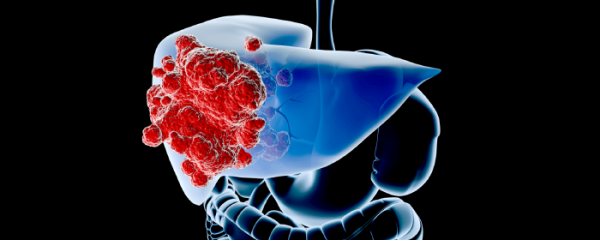87.6% Increases on liver cancer related deaths.

Cancer is a leading cause of morbidity and mortality in the United States and results in a high economic burden. A recent research published by The JAMA Network has reveal that cancer mortality declined overall in the United States between 1980 and 2014. And the number of deaths for nearly all forms of cancer has decreased significantly, but not for liver cancer, kidney cancer and non-Hodgkin lymphoma (NHL) cancer.
Deaths due to NHL and kidney cancer remained the same, but shockingly, liver cancer increased by 87.6 percent. And this increase of liver cancer is not just in the US, World Hepatitis Alliance CEO, Raquel Peck wrote that 800,000 people died worldwide from liver cancer last year. Of these, 642,500 were related to hepatitis B and C virus.
Think outside the box. Think Prevention.
In order to reduce the risks of liver cancer, we have to think outside from the currently methods. These data has once again proves that the way we deal with hepatitis and other livers diseases is not effective enough, we might be reducing risks of cirrhosis and eliminating viruses, but we are not stopping liver cancer. A range of prevention measures should be use in order to reduce this ultimate liver killer.
The usual prevention measure that we can use include things like:
- vaccination for hepatitis B,
- control the use of alcohol,
- have a healthy diet to prevent fatty liver,
- have regular physical activity.
A Direct Protection For Liver Function
More importantly, we must improve our liver function, especially for elderlies with the decrease of liver function due to ageing, as this is when liver cancer is most likely to develop. YHK therapy can directly provide this extra properties to the liver, improving the recovery of liver cells, enhance the ability to process toxics, prevent the forming of fibrosis tissues, and also to prevent the growth of liver cancer.
A research presentation at the American Institute for Cancer Research (AICR) Annual Conference shows that YHK can modulate the extrinsic and intrinsic regulators of apoptosis and sensitize tumour cells to apoptosis, which can help the liver reduce the risks of liver cancer.
What Is Good For The Liver?
Some may say that just by protecting the liver cells and enhancing liver function might not be the best way to prevent liver cancer. But just by treating the causes or symptoms of liver disease will surely never help the liver to improve its ability, nor make it any stronger. More so, all drugs and medications contain toxics substances which are harmful to the liver.
So, why are we still using all these chemical substances to treat liver diseases? Why are we not trying other methods?
- Trends and Patterns of Disparities in Cancer Mortality Among US Counties, 1980-2014 http://jamanetwork.com/journals/jama/fullarticle/2598772 (Accessed: 2017-02-13)
- PubMed - Trends and Patterns of Disparities in Cancer Mortality Among US Counties, 1980-2014 https://www.ncbi.nlm.nih.gov/pubmed/28118455 (Accessed: 2017-02-13)
- World Hepatitis Alliance http://www.worldhepatitisalliance.org (Accessed: 2017-02-13)
- Inhibitory Action of a Novel Phytotherapeutic Compound Against Human Hepatoma Cells https://www.kyotsujigyo.net/document/yhk/27.pdf (Accessed: 2017-02-13)
- * All research and clinical data should be used as reference purposes only, results may vary.






